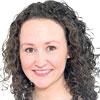
THEY are being snapped up around the world to such an extent, the healthcare industry is running out of supplies. The surgical mask is more than 100 years old and surging in sales amid fears over the spread of the coronavirus.
When was its first use?
Johann von Mikulicz Radecki, a Polish surgeon and one of the pioneers of antiseptics, is credited with its creation. Born in 1850, he is said to have invented the gauze mask in the 1890s. Initially, it consisted of a single layer of gauze which at first proved somewhat ineffective in preventing surgical wound sepsis, until a second layer was added to create more separation between the mask and the mouth.
They developed from there?
Over time, advances were made in the field, with further research seeing design changes that made masks more efficient, including making them bigger, the inclusion of filters and the integration of antibiotics or antiviral coatings to increase protection.
One thing remains the same?
The ear-loop design that holds it in place has remained the same through the generations.
They were already popular in Asian countries?
The practice of wearing face masks began in Japan during the early 20th century during the global Spanish flu pandemic that killed around 50 million people. Covering faces with scarves and veils became common practice and then, after an earthquake in 1923 in Japan, face masks were again worn to protect against ash and smoke in the air.
In Chinese medicine, breathing is also seen as key to maintaining good "qi" – positive energy - in the body, perhaps encouraging their wear.
But do they work?
There is a long-standing debate over how effective they are, with key factors including the material used, how often they are changed and if they are worn correctly. Experts have also warned that the Covid-19 virus could even enter the body through the eyes, which most masks do not cover. Public Health England also said that “Although there is a perception that the wearing of facemasks may be beneficial, there is in fact very little evidence of widespread benefit from their use outside of these clinical settings."
However?
Sales are rocketing as anxious consumers buy so many of them, prices are surging and counterfeit products are surfacing online. Sales of antibacterial handgels are also rising.
Celebrities are sporting the masks?
Actress Kate Hudson posted an image of herself wearing one on Instagram, captioning it “Travel. 2020”, while fellow movie star, Gwyneth Paltrow, also posted a picture of herself in a black mask on her social media, saying: “Paranoid? Prudent? Panicked? Placid? Pandemic? Propaganda?”
Supply is now a concern?
In America, the Surgeon General, Jerome M. Adams, tweeted: “Seriously people – STOP BUYING MASKS! They are NOT effective in preventing general public from catching #Coronavirus, but if health care providers can’t get them to care for sick patients, it puts them and our communities at risk!”
The WHO has issued an appeal?
Dr Michael J. Ryan, executive director of the health emergency program at the World Health Organisation, said: “Our primary concern is to ensure that our front line health workers are protected and that they have the equipment they need to do their jobs.
“The most important thing everyone an do is wash your hands, keep your hands away from your face and observe very precise hygiene.”
MAUREEN SUGDEN



Why are you making commenting on The Herald only available to subscribers?
It should have been a safe space for informed debate, somewhere for readers to discuss issues around the biggest stories of the day, but all too often the below the line comments on most websites have become bogged down by off-topic discussions and abuse.
heraldscotland.com is tackling this problem by allowing only subscribers to comment.
We are doing this to improve the experience for our loyal readers and we believe it will reduce the ability of trolls and troublemakers, who occasionally find their way onto our site, to abuse our journalists and readers. We also hope it will help the comments section fulfil its promise as a part of Scotland's conversation with itself.
We are lucky at The Herald. We are read by an informed, educated readership who can add their knowledge and insights to our stories.
That is invaluable.
We are making the subscriber-only change to support our valued readers, who tell us they don't want the site cluttered up with irrelevant comments, untruths and abuse.
In the past, the journalist’s job was to collect and distribute information to the audience. Technology means that readers can shape a discussion. We look forward to hearing from you on heraldscotland.com
Comments & Moderation
Readers’ comments: You are personally liable for the content of any comments you upload to this website, so please act responsibly. We do not pre-moderate or monitor readers’ comments appearing on our websites, but we do post-moderate in response to complaints we receive or otherwise when a potential problem comes to our attention. You can make a complaint by using the ‘report this post’ link . We may then apply our discretion under the user terms to amend or delete comments.
Post moderation is undertaken full-time 9am-6pm on weekdays, and on a part-time basis outwith those hours.
Read the rules here